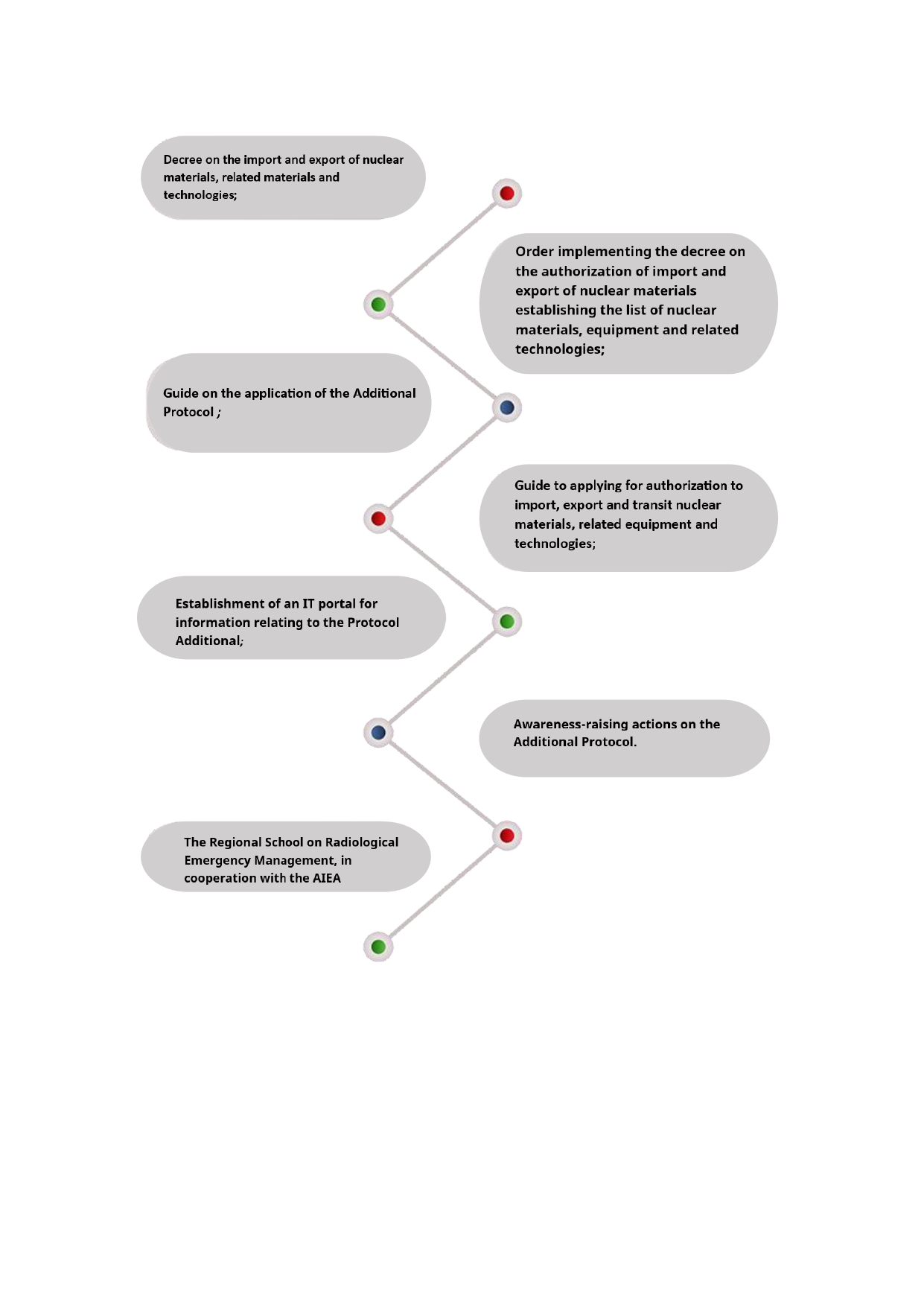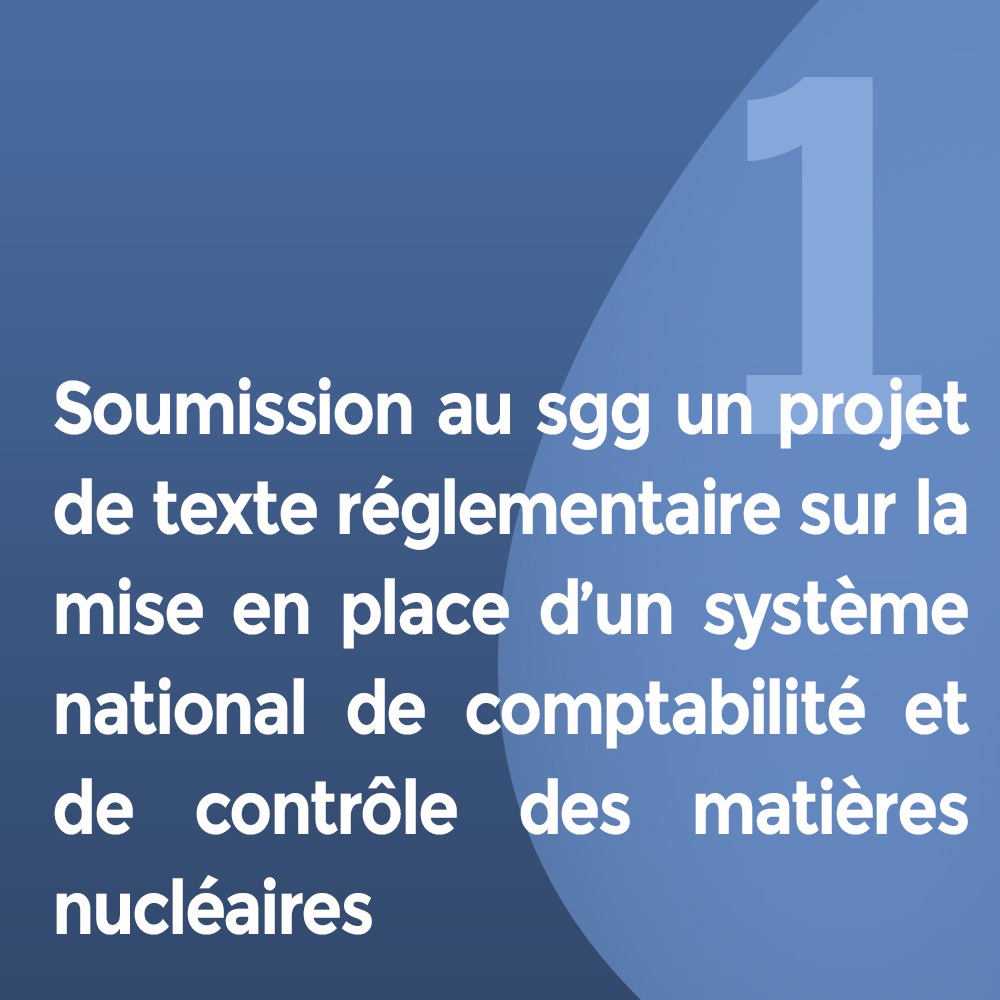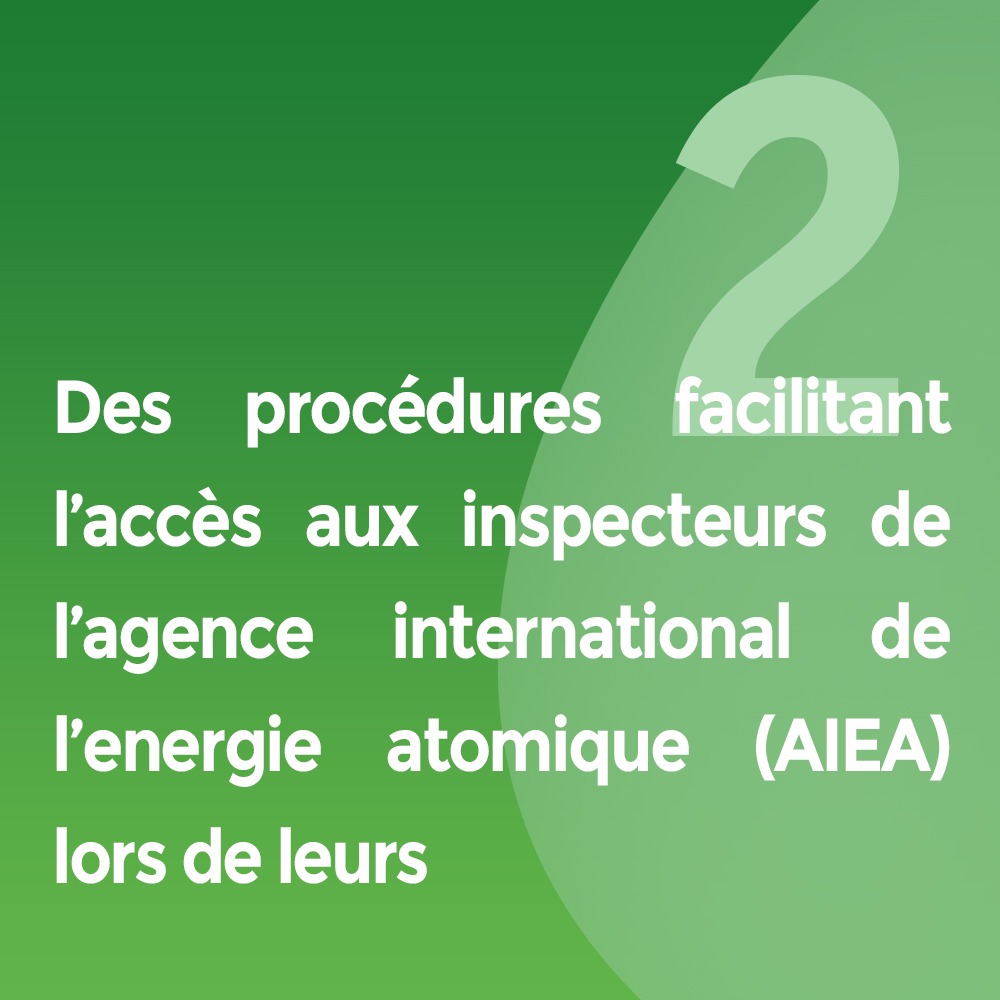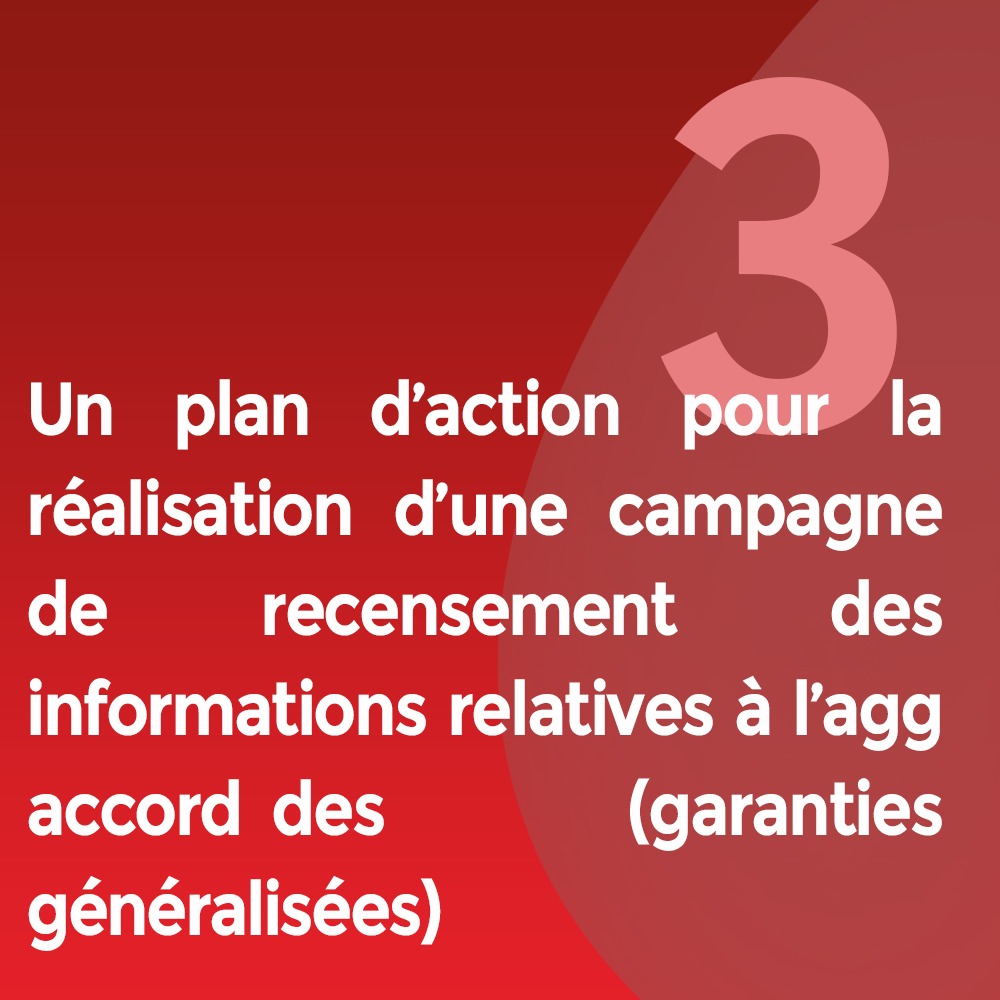Nuclear Security & Nuclear Non-Proliferation
The Nuclear Non-Proliferation Treaty (NPT) is an international treaty that entered into force in 1970. Its main objectives are to prevent the proliferation of nuclear weapons, promote the peaceful use of nuclear energy, and work for nuclear disarmament. It currently has more than 190 states parties and is therefore the treaty with the strongest membership in the fields of non-proliferation and disarmament. Under the NPT, non-nuclear weapon States Parties undertake not to manufacture or otherwise acquire nuclear weapons or other explosive nuclear devices, while nuclear weapon States Parties undertake not to assist, encourage, or induce, in any way, a non-nuclear weapon State Party to manufacture or otherwise acquire nuclear weapons or other nuclear explosive devices.
In accordance with this principle, the Kingdom of Morocco, as part of the treaty, has the right to participate in the widest possible exchange of scientific information for the further development of the uses of atomic energy for peaceful purposes and to contribute to this development individually or in cooperation with other member states.
Under Article III of the NPT, the Kingdom of Morocco undertakes to conclude an agreement with the International Atomic Energy Agency (IAEA) for the application of safeguards to all nuclear materials in all peaceful nuclear activities on Moroccan territory. Thus, the safeguards agreement entered into force on February 18, 1975, and its Additional Protocol (AP) on April 21, 2011.
Law 142-12 stipulates that the provisions of the Treaty on the Non-Proliferation of Nuclear Weapons and those of the Safeguards Agreement are applicable in this regard in accordance with the commitments made by the Kingdom of Morocco. It therefore stipulates that the Moroccan State and the operators must cooperate with the IAEA for the application of safeguards, in particular by:
- Promptly communicating the information required under the safeguard’s agreement and its additional protocol;
- Providing authorized AMSSNuR representatives and IAEA inspectors with access to facilities and other locations as required by the safeguards agreement;
- Cooperating with and assisting IAEA inspectors in their verification duties.

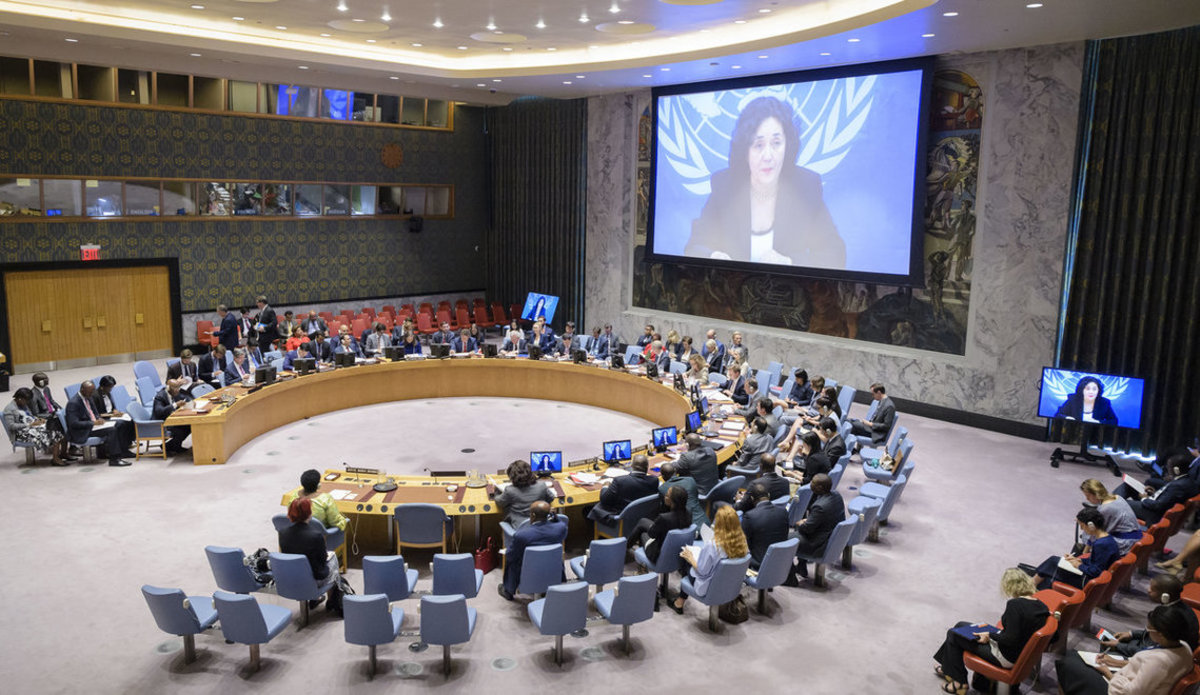
The NPT is not the only international non-proliferation legal instrument. Another equally important instrument is United Nations Security Council Resolution 1540 (2004), which was adopted on April 28, 2004. It is mandatory for all UN member states.
Resolution 1540 addresses the threat to international peace and security caused by the proliferation of nuclear, chemical, and biological weapons, as well as their delivery systems, to non-state actors.
Resolution 1540 requires all states to adopt appropriate laws and other effective measures to prevent the proliferation of weapons of mass destruction and their delivery systems to non-state actors, especially for terrorist purposes. The implementation of the requirements of Resolution 1540 requires the involvement of various national stakeholders, including AMSSNuR. Indeed, Law No. 142-12 subjects the import, export, and transit of nuclear materials, equipment, and related technologies to authorization from the administration after notice from AMSSNuR.
For non-proliferation purposes, AMSSNuR is responsible, among other things, for:
Developing regulations and guidelines regarding nuclear safeguards.
Assessing the “safeguards” aspect of authorization requests.
Monitoring the accounting of nuclear materials held by national operators.
Facilitating inspections by the IAEA under the safeguards agreement and Additional Protocol.
AMSSNuR Achievements
Law No. 142-12 and the subsidiary arrangements to the Generalized Safeguards Agreement (GSA) designate AMSSNuR as the new regulatory authority responsible for implementing the GSA and the Additional Protocol (AP).
To this end, AMSSNuR has developed and submitted to the General Secretariat of the Government (SGG) a draft regulatory text on the “establishment of a National System of Accounting and Control (SSAC) for nuclear materials and the implementation of the Additional Protocol.” The agency has also prepared procedures to facilitate verification activities conducted by AMSSNuR and International Atomic Energy Agency (IAEA) inspectors in accordance with the AGG and the AP. AMSSNuR has also prepared an action plan for the implementation of a campaign to collect information related to AGG and PA.
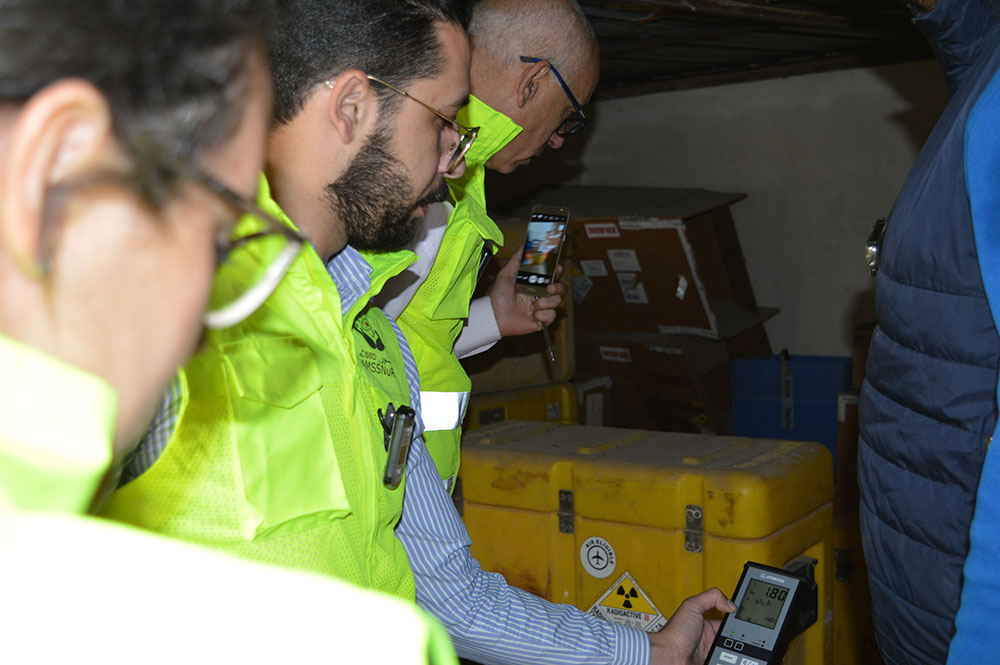
Ongoing and Future Projects
